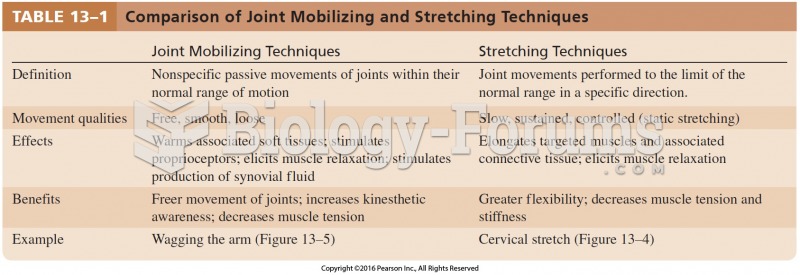This topic contains a solution. Click here to go to the answer
|
|
|
Did you know?
Historic treatments for rheumatoid arthritis have included gold salts, acupuncture, a diet consisting of apples or rhubarb, nutmeg, nettles, bee venom, bracelets made of copper, prayer, rest, tooth extractions, fasting, honey, vitamins, insulin, snow collected on Christmas, magnets, and electric convulsion therapy.
Did you know?
The newest statin drug, rosuvastatin, has been called a superstatin because it appears to reduce LDL cholesterol to a greater degree than the other approved statin drugs.
Did you know?
More than 4.4billion prescriptions were dispensed within the United States in 2016.
Did you know?
There are more bacteria in your mouth than there are people in the world.
Did you know?
Human kidneys will clean about 1 million gallons of blood in an average lifetime.







